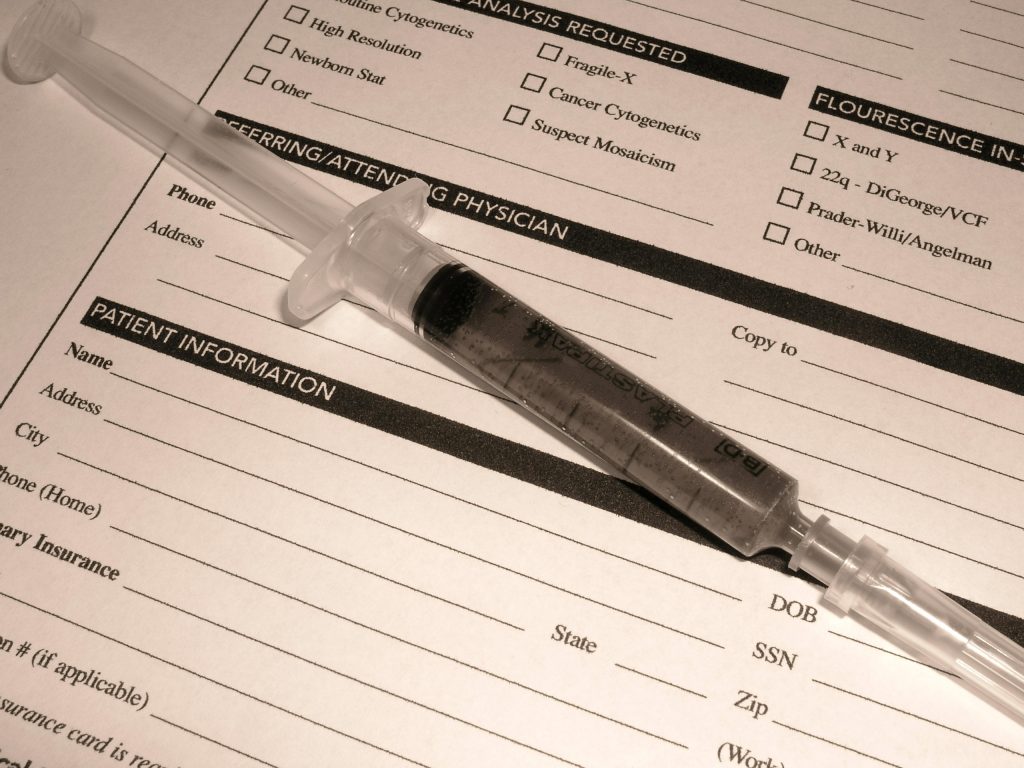 The death of a loved one is always a traumatic experience for family and friends, especially if the death could have been prevented or is at the fault of the hospital. When someone feels as if medical malpractice has occurred, Louisiana has strict guidelines regarding filing a medical malpractice lawsuit and someone unfamiliar with the legal process can easily be confused or frustrated by this complex process. For example, in Louisiana you have one year following a death to file a medical malpractice suit, however, is that filing due at by the close of business at the one year or is the filing due by midnight? The Louisiana Supreme Court recently consolidated two cases that answered such questions on when you have to file a medical malpractice lawsuit.
The death of a loved one is always a traumatic experience for family and friends, especially if the death could have been prevented or is at the fault of the hospital. When someone feels as if medical malpractice has occurred, Louisiana has strict guidelines regarding filing a medical malpractice lawsuit and someone unfamiliar with the legal process can easily be confused or frustrated by this complex process. For example, in Louisiana you have one year following a death to file a medical malpractice suit, however, is that filing due at by the close of business at the one year or is the filing due by midnight? The Louisiana Supreme Court recently consolidated two cases that answered such questions on when you have to file a medical malpractice lawsuit.
The facts of these two cases are similar, which is exactly why the Louisiana Supreme Court decided to consolidate these cases. In the case of Rose Tillman, who sadly passed away on May 22, 2012, her surviving children’s request for a medical malpractice claim was sent to the Louisiana Division of Administration (DOA) on May 22, 2013 after 5 pm, after the DOA office had closed. As a result, the DOA’s filing system received the request on the following business day, May 23. In the case of Peighton Miller she received a shoulder injury on April 4, 2012 while in the care of a hospital. Again, a malpractice claim was sent to the DOA on April 4, 2013 after the DOA’s 5pm closure. The facts in these cases are undisputed, and at trial, the 24th Judicial District Court for the Parish of Jefferson court ruled in favor of Tillman, and the Fifth Circuit Court of Appeals ruled in favor of Peighton Miller.
In response, Tulane Lakeside Hospital and Durga Ram Sure (the plaintiffs) appealed the decision. Per La. C.C. art. 3492, defendants have one year to file a malpractice claim and that is one-year prescription begins the day the injury was received. In addition, La. R.S. 9:5628 describes how actions against healthcare providers must commence within 1 year of the sustainment or the discovery of the injury. Moreover, Section 1231.8(a)(2)(b) of the Medical Malpractice Act states how the request for a malpractice review “shall be deemed filed on the date of receipt of the request stamped and certified by the division of administration.” On appeal, the plaintiffs insisted the statute was too vague because it was the DOA’s understanding that a malpractice claim has not been received until it had been “stamped and certified,” which happens during the business day meaning any documents received after 5pm have technically not been received by the DOA until the following business day. However, according to La. C.C. art. 12 when the words of a law are ambiguous or confusing, the words should be evaluated to fit the purpose of the law.
 When a lawsuit fails, there are certain situations where the party who brought the failed lawsuit is responsible for the costs to the other party. Where that line is drawn is generally based on a judge’s discretion and views on the reasonability of those costs. Without excellent attorney work, procedural and legal roadblocks may make it impossible for a court to award the fees that a party should be entitled to. That was the case for three dentists after winning a lawsuit against a Baton Rouge plaintiff.
When a lawsuit fails, there are certain situations where the party who brought the failed lawsuit is responsible for the costs to the other party. Where that line is drawn is generally based on a judge’s discretion and views on the reasonability of those costs. Without excellent attorney work, procedural and legal roadblocks may make it impossible for a court to award the fees that a party should be entitled to. That was the case for three dentists after winning a lawsuit against a Baton Rouge plaintiff. Louisiana Personal Injury Lawyer Blog
Louisiana Personal Injury Lawyer Blog


 Informed consent in medical situations ensures that a patient is aware of the risks associated with their upcoming medical procedure. This information is disclosed beforehand to serve two purposes: First, it gives the patient the information to make an educated decision on whether to go through with the procedure. Second, it gives the doctor legal protection against lawsuits from patients when those complications or issues the patient was warned could happen actually happen. This was the case for a Shreveport dentist who needed an excellent attorney after complications arose after a patient received a dental implant.
Informed consent in medical situations ensures that a patient is aware of the risks associated with their upcoming medical procedure. This information is disclosed beforehand to serve two purposes: First, it gives the patient the information to make an educated decision on whether to go through with the procedure. Second, it gives the doctor legal protection against lawsuits from patients when those complications or issues the patient was warned could happen actually happen. This was the case for a Shreveport dentist who needed an excellent attorney after complications arose after a patient received a dental implant. Typically, the scary aspect of surgery is over when the procedure ends and the person wakes up from the anesthesia. The last thing most people expect is to get injured after the surgery is already over. Unfortunately for one Iberia Parish woman, her troubles were only beginning even though she had a successful surgery. That being said, can you claim medical malpractice while you are recovering?
Typically, the scary aspect of surgery is over when the procedure ends and the person wakes up from the anesthesia. The last thing most people expect is to get injured after the surgery is already over. Unfortunately for one Iberia Parish woman, her troubles were only beginning even though she had a successful surgery. That being said, can you claim medical malpractice while you are recovering? When you go to the hospital, you expect to be taken care of by a qualified physician who properly diagnoses you. If that doesn’t happen, tragedy can strike. And if tragedy strikes, you want the responsible partie(s) to be held responsible by being liable for damages. But does the Louisiana Medical Malpractice Act (MMA) limit liability in these cases?
When you go to the hospital, you expect to be taken care of by a qualified physician who properly diagnoses you. If that doesn’t happen, tragedy can strike. And if tragedy strikes, you want the responsible partie(s) to be held responsible by being liable for damages. But does the Louisiana Medical Malpractice Act (MMA) limit liability in these cases? The death of a loved one is always a traumatic experience for family and friends, especially if the death could have been prevented or is at the fault of the hospital. When someone feels as if medical malpractice has occurred, Louisiana has strict guidelines regarding filing a medical malpractice lawsuit and someone unfamiliar with the legal process can easily be confused or frustrated by this complex process. For example, in Louisiana you have one year following a death to file a medical malpractice suit, however, is that filing due at by the close of business at the one year or is the filing due by midnight? The Louisiana Supreme Court recently consolidated two cases that answered such questions on when you have to file a medical malpractice lawsuit.
The death of a loved one is always a traumatic experience for family and friends, especially if the death could have been prevented or is at the fault of the hospital. When someone feels as if medical malpractice has occurred, Louisiana has strict guidelines regarding filing a medical malpractice lawsuit and someone unfamiliar with the legal process can easily be confused or frustrated by this complex process. For example, in Louisiana you have one year following a death to file a medical malpractice suit, however, is that filing due at by the close of business at the one year or is the filing due by midnight? The Louisiana Supreme Court recently consolidated two cases that answered such questions on when you have to file a medical malpractice lawsuit.  When you are injured or ill and need treatment, you turn to a hospital and put your trust in the doctors and healthcare providers at that hospital. Normally, healthcare providers are diligent and provide top-notch care, however, occasionally a hospital fails to live up to the trust given to them by the patient. When this occurs, the
When you are injured or ill and need treatment, you turn to a hospital and put your trust in the doctors and healthcare providers at that hospital. Normally, healthcare providers are diligent and provide top-notch care, however, occasionally a hospital fails to live up to the trust given to them by the patient. When this occurs, the  The emergency room is supposed to provide lifesaving care, quickly, to those who need it
The emergency room is supposed to provide lifesaving care, quickly, to those who need it 
 Medical malpractice lawsuits are filed for a wide range of injuries and even death. When a patient finds himself in a scenario where he believes a medical professional could have done more to prevent his injuries or cure his condition, he may decide to go through with a lawsuit. Medical malpractice lawsuits often require expert witnesses to succeed and proving damages in these cases where the patient enters a medical facility sick or injured can be a tough case to win. So, can you lose your medical malpractice case if you do not have enough evidence?
Medical malpractice lawsuits are filed for a wide range of injuries and even death. When a patient finds himself in a scenario where he believes a medical professional could have done more to prevent his injuries or cure his condition, he may decide to go through with a lawsuit. Medical malpractice lawsuits often require expert witnesses to succeed and proving damages in these cases where the patient enters a medical facility sick or injured can be a tough case to win. So, can you lose your medical malpractice case if you do not have enough evidence?